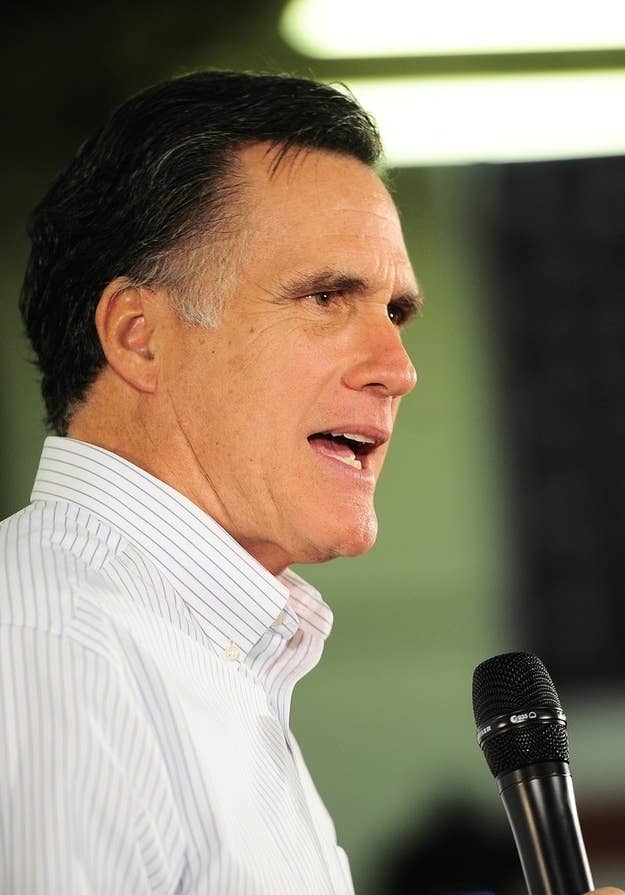
MANCHESTER, New Hampshire -- In an energetic victory speech here Tuesday night, Mitt Romney sought to adopt a tone of optimism--while, at the same time, girding himself for what is certain to be a bruising year of attacks from all corners of American politics.
"Tonight we celebrate," he told a crowd of cheering supporters at Southern New Hampshire University. "Tomorrow we go back to work."
There will be plenty of work to do. His victories in Iowa and New Hampshire propel him into South Carolina --a state where Romney's rivals are expected to make defiant last stands.
In his speech Tuesday night, the candidate acknowledged one attack that has dominated headlines in recent days: the assault on his record as a private equity executive at Bain Capital, where some of the companies he helped acquire executed mass layoffs in order to become profitable.
"President Obama wants to put free enterprise on trial," Romney said. "In the last few days, we have seen some desperate Republicans join forces with him. This is such a mistake for our party and for our nation."
The crowed booed.
Already, Romney's primary opponents have been sharpening their attacks on his business record, with Rick Perry referring to Bain consultants as "vultures," and Newt Gingrich accused Romney of "looting a company and leaving behind broken families and broken neighborhood." Expect those attacks to get worse in South Carolina, where Gingrich supporters plan to air a 27-minute documentary devoted to exposing the what his opponents consider predatory and harmful business practices.
But while the ongoing campaign to cast Romney as a greedy Gordon Gekko could come back to haunt him in the general election, perhaps the more daunting obstacle in South Carolina will be the Mormon question.
Aside from a couple rhetorical bombs lobbed at Romney's faith by his opponents' surrogates, Mormonism has yet to become a serious issue this cycle. But in South Carolina, the evangelical Christians who make up a significant portion of the state's GOP widely view Romney's faith with suspicion and even outright hostility.
To deal with this fact, Romney has tried to walk a fine line, highlighting his commitment to his faith without actually delving into the details of his beliefs. His religious rhetoric tends to be vague and general. In Tuesday's speech, for example, he said, "In these difficult times, we cannot abandon the core values that define us as unique: we are one nation, under God."
Romney's rivals--and their religious supporters--know this is a major weakness for him in South Carolina, and they plan to capitalize. Within minutes of Romney's victory speech in New Hampshire, a YouTube video surfaced claiming that the veracity of the Book of Mormon has been debunked by DNA evidence. It's a wonky attacks, to be sure, but it's likely just the beginning of an anti-Mormon whisper campaign that will passed from inbox to inbox in the coming weeks.
Along with attacks on his business record and his religion, Romney will face questions about his social conservative bona fides--his record on abortion and gay rights as governor of Massachusetts is decidedly moderate--and no doubt critics will continue to make fun of the candidate's stiffness on the stump.
If Romney can score a win in South Carolina, the nominating contest will be essentially over--an outcome that current polls in the state seem to predict. The question now is whether the Palmetto State battle royale will leave him too bloody and battered to defeat an incumbent president.
